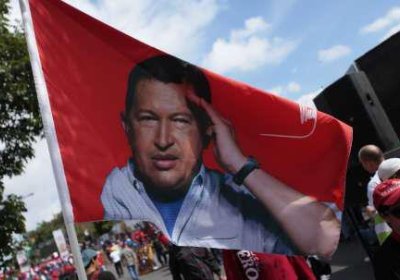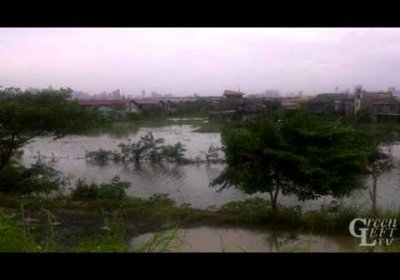The Philippines’ Million People March, against the so-called pork barrel system of corruption, is the latest in a series of huge protests worldwide, which exploded with the United States’ Occupy Movement and the Arab Spring of 2011.
The Luneta rally was attended by at least 200,000 people (according to government estimates). However, aerial footage of the event showed attendance was almost certainly higher.
The Luneta rally was part of nationwide and global protests, involving a further 500,000 people in major cities in the Philippines and by Filipino communities worldwide.
Philippines
The Party of the Labouring Masses (PLM), a Filipino socialist party, released the statement below on August 12.
* * *
The PLM joins the campaign to protest against the recent spate of killings of labour leaders, the most recent case being the assassination of transport workers’ leader Antonio “Dodong” Petalcorin on July 2.
Petalcorin joins the ranks of assassinated workers’ leaders this year, such as Emilio Rivera and Carlos Cirilo, who were also members of the national labour centre, the Alliance of Progressive Labor in the Philippines.
The statement below was released by the Party of the Labouring Masses (PLM), a Filipino socialist group, on July 1.
* * *
The PLM condemns any moves to pave the way for the return of US military base facilities in the Philippines. This includes giving the US access to Philippine military bases and facilities at Clark and Subic, as Defense Secretary Voltaire Gazmin has admitted has occured.
In May 13 mid-term elections for both houses of Congress, and provincial and municipal-level local governments, the control of electoral politics in the Philippines by a small number of powerful, nepotistic families became a big issue.
It was the left-wing Party of the Labouring Masses (PLM) that put the question of political dynasties onto the agenda.
However, not all the PLM’s impact on the election translated into votes and, due to fraud, not all the votes the PLM received in the ballot box translated to votes in the official tally.
On this May 1, a day of international working class solidarity, we in the Philippine labor and progressive movement, stand with the Venezuelan working class and the people of Venezuela in their struggle to elect the government of their choice to pursue their demands and goals for Socialism of the XXI century.
We congratulate Nicholas Maduro from the Partido Socialista Unido de Venezuela on his election victory and condemn the destabilisation campaign conducted by the US backed opposition coalition of Capprilles to undermine the election results and the newly elected government.
The Filipino Partido Lakas ng Masa (Party of the Labouring Masses -- PLM) released this statement on December 11 in response to the impact of Typhoon Bopa (Pablo). read more about the PLM's activities here.
* * *
* A total ban on all logging and mining activities!
* Implement massive reforestation and a sustainable development plan!
* Climate justice now! We demand full reparation from rich countries and their corporations!
The People’s Coalition Against Regressive Taxation held a 4000-strong blockade of the upmarket Manila Shangri-La Hotel from December 5 to 6. The Bicameral Conference Committee, representing the upper and lower houses of the Philippines parliament, were inside debated the Sin Tax Bill, which will double the prices of cigarettes and alcohol.
Workers and farmers were represented in the blockade, whose ranks were drawn predominantly from the urban poor.
At a one-day assembly of more than 500 delegates on November 28, the militant socialist Party of the Labouring Masses (PLM) introduced its candidates for national elections scheduled for May 13 next year.
The PLM, which now holds positions in several Barangay (neighbourhood) councils, is running 20 candidates for municipal councillor, vice-mayor, mayor and Congress. They include candidates in Negros and Iligan, in the Philippine archipelago’s south. Most candidates, however, are in Metro Manila or the semi-urban provinces surrounding the capital: Cavite, Rizal, Bulacan and Laguna.
A 1500-strong march wound its way through Manila to mark Bonifacio Day on November 30.
The day marks the birthday of 19th century Filipino independence leader Andres Bonifacio, known as “the Great Plebian” due to his humble origins and support for the poor. Bonifacio died at the hands of pro-elite rivals in the independence movement.
The march was organised by the BMP trade union confederation, the Party of the Labouring Masses (PLM), the peasants’ and rural workers’ organisation AMA, the KPML organisation of the urban poor and the SANLAKAS democratic front.
The petition for certification of Party of the Labouring Masses (PLM) as a national political party was approved by the Commission on Elections in September. With this approval, the fight for a national political party representing the marginalised sectors has escalated to new heights.
This is a confirmation of the PLM’s three-and-a-half years of existence and its expansion as a political party with a mass constituency and grassroots chapter-formations.
The desperate millions than comprise Manila's urban poor settlers were the worst hit by the recent floods but the government has scapegoated them for the ongoing disaster and threatened to "blast away" the shanty homes of 100,000.
As the Philippine government dithered and made excuses for its grossly inadequate response to the catastrophic floods — which inundated 80% of the country's capital, Manila — Sonny Melencio was leading a grassroots relief effort that brought the first food supplies in days to some of the poorest and most badly affected communities.
- Previous page
- Page 8
- Next page




